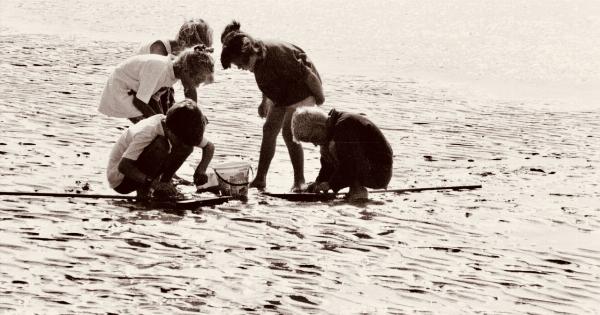Memories are an essential element of our lives. They allow us to retain experiences, knowledge and information that can help us in future. For a long time, scientists have been trying to understand the process of memory formation and how it works.
Memory formation is a complex process that involves many factors. In this article, we will discuss the triggers that can cause the formation of memories.
The Role of Learning
The first and most obvious trigger of memory formation is learning. Memory formation is impossible without learning. When we experience a new event, our brain processes this information and stores it as a memory.
The more we learn, the more our brain forms memories.
Furthermore, repetition and reinforcement of learned materials can significantly enhance memory formation.
When we repeatedly expose ourselves to new information, our brain processes and stores that information more efficiently, making it easier to recall in the future.
Emotional Triggers
Emotions can also play a crucial role in memory formation. When we experience strong emotions, positive or negative, our brain processes these emotions and is more likely to form long-term memories.
For instance, we tend to remember significant events such as birthdays, weddings, graduations, and other significant ceremonies. These events are usually strongly associated with positive emotions and can evoke powerful memories.
On the other hand, negative emotions such as fear, anxiety, or trauma can also affect memory formation.
In some cases, traumatic events can lead to the formation of flashbulb memories, which are vivid and detailed memories of an emotionally significant event.
Learning through Associations
Memory formation can also be triggered by associations. Our brain is always looking for patterns and associations in the information we receive.
When we learn new information that is associated with already established patterns or ideas, our brain tends to integrate this information and forms a memory.
For instance, when we learn new words in a foreign language, we often associate these new words with similar words in our native language. These associations help us learn and remember new words.
The Importance of Sleep
Believe it or not, sleep plays a vital role in memory formation. While we sleep, our brain consolidates memories, strengthening them and making them easier to recall later.
This process occurs during slow-wave sleep, which is the deepest stage of non-REM sleep. During this stage, the brain processes memories, consolidating them and integrating them into the long-term memory system.
Visual and Spatial Memory Triggers
Visual and spatial memory triggers can also play a significant role in memory formation. Visual triggers can include images, pictures, and visual aids that help us learn new information.
For instance, people remember things better when they see a visual representation of them. A picture can help us retain a visual image of an object or a concept in our memory.
Similarly, spatial memory triggers can be used to remember locations or directions. For instance, we can remember a sequence of directions by using a visual representation of a map.
The Role of Attention
Memory formation also depends on attention. When we are focused and attentive, we are more likely to form detailed and rich memories. On the other hand, when we lack attention and focus, our memories tend to be less detailed and fragmented.
Therefore, it is essential to be alert and focused when learning new information, especially when trying to remember important details.
The Impact of Aging
As we age, our memory abilities tend to decline. Older adults tend to experience a decline in memory retrieval and may have difficulty remembering important details. However, this does not mean that memory formation is impossible.
While aging decreases memory function, continued learning and cognitive engagement can help maintain and even improve memory abilities.
Furthermore, memory training programs and other memory enhancement techniques can be used to help older adults improve their memory function.
The Role of Genetics
The process of memory formation can also be influenced by genetics. Studies have shown that genetics may play a significant role in memory function, including memory formation, retention, and retrieval.
Therefore, some people may have a genetic predisposition to excellent memory, while others may have a genetic predisposition to memory deficits.
Mental and Physical Exercise
Exercise, both mental and physical, can also enhance memory function. Physical exercise promotes the formation of new neurons in the hippocampus, a region of the brain that plays a crucial role in memory formation.
Furthermore, mental exercise, such as brain games, puzzles, and other activities that challenge the brain can help maintain and improve memory function.
Conclusion
Memory formation is a complex process that involves many factors. Learning, emotions, associations, sleep, attention, and genetics can all trigger the formation of memories.
Therefore, if you want to improve your memory function, it’s essential to engage in activities that challenge your mind and promote learning and cognitive engagement.
Additionally, taking care of your physical and mental health can also have a significant impact on your memory function.





























